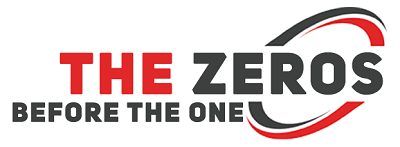Experience Sampling is a research technique that allows for collecting real-time data on participants’ experiences. It involves having participants report on their thoughts, feelings, and behaviors at multiple points throughout the day. Experience Sampling has become increasingly popular in fields such as psychology and marketing because it provides rich data on participants’ experiences. In this blog, we will discuss the strengths and weaknesses of experience sampling and its prospects and downfalls.
Strengths of Experience Sampling
Allows for the study of behavior in real-time
One of the primary strengths of experience sampling is its ability to capture participants’ experiences in real-time. This allows researchers to study behavior as it occurs in natural settings, rather than relying on self-report or laboratory-based studies. This increases ecological validity, which is the degree to which findings can be generalized to real-world settings.
Reduces bias and increases ecological validity
Experience sampling also reduces bias in research studies. Participants are more likely to report accurate information when they are reporting on their experiences in real-time, rather than relying on retrospective self-reports. Additionally, experience sampling allows researchers to collect data in natural settings, which increases ecological validity.
Weaknesses of Experience Sampling
High participant burden and potential for participant fatigue
Experience Sampling can be burdensome for participants. It requires participants to report on their experiences multiple times throughout the day, which can be time-consuming and disruptive. This can lead to participant fatigue, which can compromise the quality of the data collected.
Limited ability to study complex phenomena
Experience Sampling is not well-suited for studying complex phenomena. It is best used for studying relatively simple phenomena, such as emotions and habits. This is because participants are only reporting on their experiences at a single point in time, and cannot provide the depth of information needed to study more complex phenomena.
Potential for technological difficulties
Experience Sampling relies heavily on technology, such as smartphones and wearables. This can lead to potential technological difficulties, such as connectivity issues or battery drain. These issues can compromise the quality of the data collected.
Prospects of Experience Sampling
Growing popularity in fields such as psychology and marketing
Experience Sampling has become increasingly popular in fields such as psychology and marketing. This is due to its ability to provide rich data on participants’ experiences in real-time. As technology continues to advance, experience sampling is likely to become even more widely used.
Potential for improved mental health treatment and diagnosis
Experience Sampling has the potential to improve mental health treatment and diagnosis. By collecting real-time data on participants’ experiences, clinicians can gain a more comprehensive understanding of their patients’ mental health. This can lead to more effective treatment strategies and improved outcomes.
Downfalls of Experience Sampling
Potential for misuse in marketing and advertising
Experience Sampling has the potential to be misused in marketing and advertising. Companies may use experience sampling to collect data on consumers without their knowledge or consent, which can compromise their privacy. Additionally, experience sampling data can be used to manipulate consumer behavior, which can be ethically questionable.
Ethical concerns around privacy and data collection
Experience Sampling raises ethical concerns around privacy and data collection. Participants may be uncomfortable with the level of data collection involved in experience sampling, particularly if they are not fully informed about the purpose of the study or the ways in which their data will be used. Researchers and marketers must be transparent about their data collection practices and obtain informed consent from participants.
Conclusion
Experience Sampling is a valuable research technique that allows for the collection of real-time data on participants’ experiences. Its strengths include the ability to study behavior in real-time, reduce bias and increase ecological validity, provide rich data on participants’ experiences, and study a variety of phenomena.
However, experience sampling also has weaknesses, such as high participant burden and potential for participant fatigue, limited ability to study complex phenomena, potential for technological difficulties, and potential for sampling bias. Despite its weaknesses, experience sampling has prospects such as growing popularity in fields such as psychology and marketing, potential for improved mental health treatment and diagnosis, and potential for personalized marketing strategies.
FAQs
What is an Offline Marketing Agency?
An offline marketing agency is a marketing agency that focuses on marketing strategies that do not involve digital channels. Examples of offline marketing strategies include print advertising, direct mail, billboards, and event marketing.
How can experience sampling be used in an Experiential Marketing Agency?
Experience Sampling can be used in Experiential Marketing Agency to gain insights into consumers’ experiences at events or other marketing activations. By collecting real-time data on participants’ experiences, experiential marketers can gain a more comprehensive understanding of what resonates with their target audience and use this information to inform future marketing strategies.
What types of data can be collected through Experience Sampling?
Experience Sampling can collect a variety of data, including but not limited to: momentary affect (e.g., mood), stress levels, physical activity, social interactions, and cognitive processes such as attention and memory.
How can Experience Sampling be used in clinical psychology?
Experience Sampling can be used in clinical psychology to gain insights into patients’ daily experiences and symptoms. By collecting data on patients’ experiences in real-time, clinicians can gain a more comprehensive understanding of their patients’ symptoms, identify triggers and patterns, and develop more personalized and effective treatment plans.
What are some potential ethical concerns with Experience Sampling?
Some potential ethical concerns with Experience Sampling include participant privacy, informed consent, and potential manipulation of participants’ behavior. It is important for researchers and marketers to address these concerns by being transparent about their data collection practices and obtaining informed consent from participants. Additionally, researchers and marketers must ensure that their use of Experience Sampling is ethically responsible and does not compromise participant autonomy or privacy.













